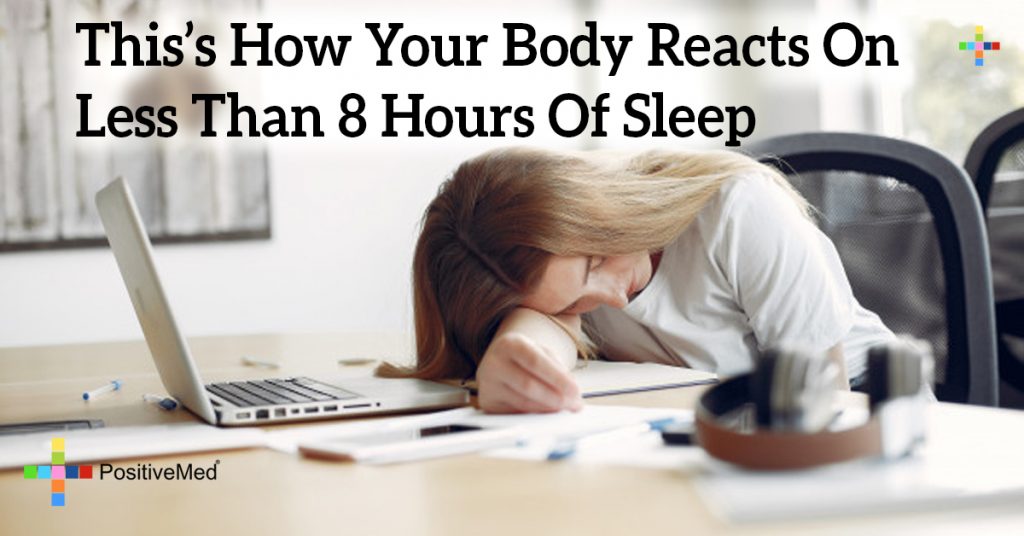
This’s How Your Body Reacts On Less Than 8 Hours Of Sleep
Life is busy for almost everyone, and this lifestyle of overworking and excess can become overwhelming when you add the challenges of jobs and family, not to mention all the things we need and want to do to live a full life, such as exercise and hobbies. Increasingly long work days and attempts to piece together part-time jobs to make ends meet don’t help our already sleep-deprived culture. Although sleeplessness is often taken lightly as yet another necessary part of modern life, studies have shown that skimping on sleep can not only be exhausting, but deadly.

Depression
Depression and insomnia go hand-in-hand, and individuals suffering from insomnia were five times more likely to suffer from depression than the general population. Although the link between depression and insomnia is not completely clear, it could be due to hormonal changes that occur when one is not able to get the full eight hours of sleep every night. Studies have shown that even a couple of lost hours of sleep can result in enormous changes to hormonal levels in the body and mind.
Ageing and Health Problems
Studies have linked sleeplessness to increase release of Cortisol, the stress hormone, and less release of Human growth hormone, which repairs the body and mind during deep sleep. Long-term sleep issues, if left unchecked, can lead to premature aging, suppression of the immune system, and increase your risk of high blood pressure and heart attack. Sleeplessness shows up on the skin, too, through less skin elasticity and dark circles under the eyes.
Cognition Issues
A lack of sleep also contributes to cognitive impairment, particularly about judging your own capabilities. Studies have shown that individuals suffering sleeplessness rate their performance on cognitive tests as higher than the actual rating and consistently lack awareness of their poor performance. A lack of sleep also affects short-term memory.
Weight Gain
Researchers have consistently linked weight gain to a lack of sleep. Sleeping fewer than eight hours a week tends to increase appetite, particularly for foods that pack on the pounds, like carbohydrates and fats. In fact, people who sleep fewer than six hours a night are 30% more likely to become obese than those who sleep seven hours or more per night.
RELATED ARTICLE: Find Out What’s The Perfect Temperature For Sleep
Death
Although this might sound dramatic, the research supports the grave consequences of sleeplessness: getting less sleep than you need every night can increase your likelihood of death from all causes. The Whitehall II Study is a famous study done on British Civil Servants. Those in the study who slept from 7 to 5 (or fewer) hours a week doubled their likelihood of death from a variety of causes, particularly cardiovascular issues (as mentioned above, in a discussion of suppressed immune systems).
So, what do you do about sleeplessness when modern life so often seem made to deny you the sleep you need? First, you have to decide to prioritize sleep. Instead of going out two nights a week with friends, choose one night to stay in our cut the night short to allow yourself time to rest. If possible, reduce your workload and cut corners elsewhere to make ends meet. If you’ve changed your lifestyle and simply have trouble getting to sleep at night, try to eliminate use of screens at least an hour before bed: that means no Facebooking with your phone in bed or using your laptop to catch up on last-minute e-mails.
Let yourself enjoy a warm bath or a book in the hours before sleep to better prepare your body to wind down. If you have kids, take turns waking up early with them with your spouse. That way, both spouses will get at least one day to catch up. Lastly, try your best not to over schedule yourself: remember that sleeping is part of your health, and it is just as important as eating right and exercise. Make time for sleep and you’ll find yourself more energized during the week and enjoying your life more fully.





